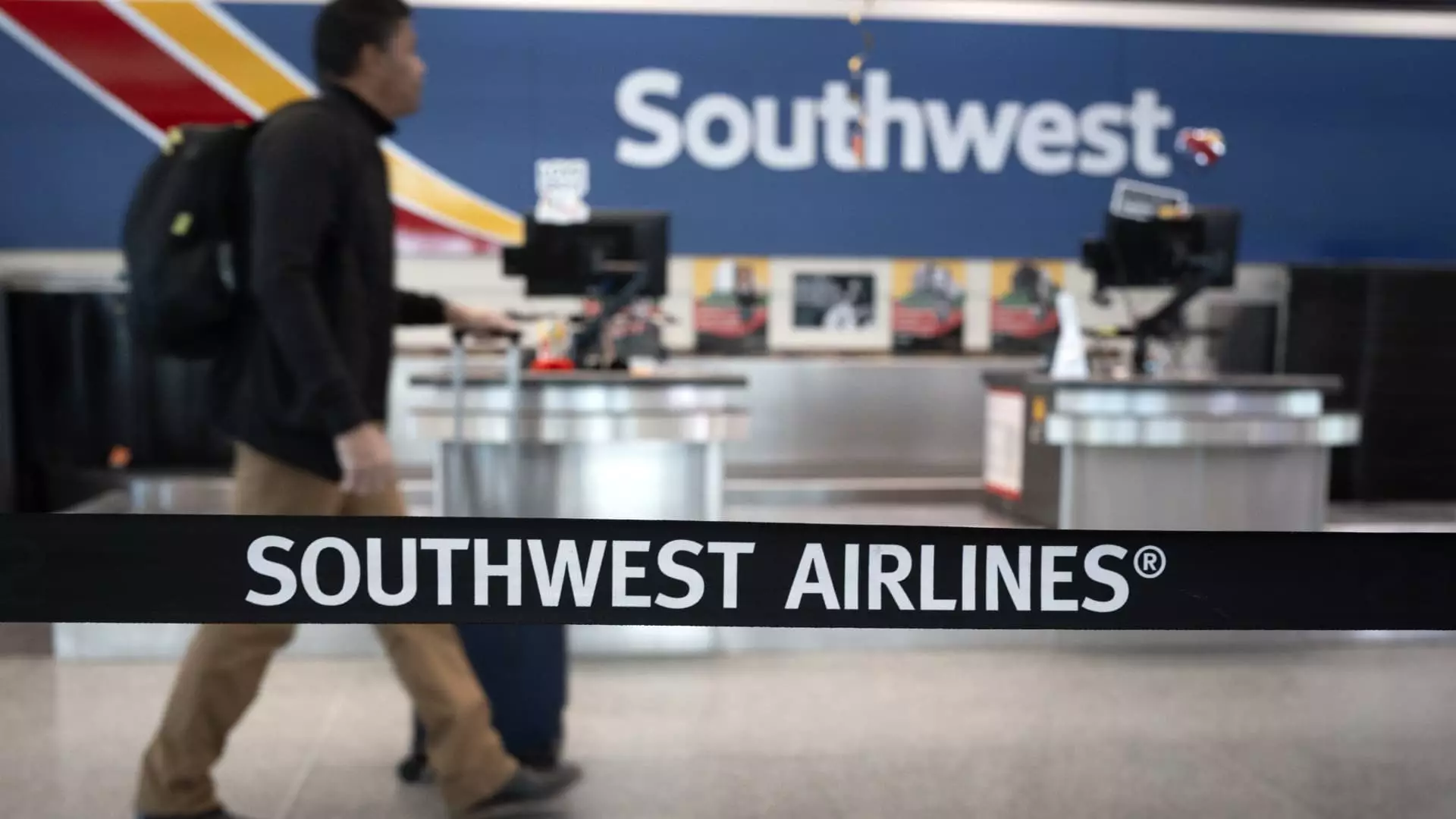In a landmark decision that is set to reverberate throughout the airline industry, Southwest Airlines is poised to end its iconic „two bags fly free“ policy, a hallmark of its customer-friendly approach for over 50 years. Commencing Wednesday, travelers will find themselves facing baggage fees for the first time, marking a significant departure from an airline ethos that has long prioritized minimizing costs incurred by passengers. This decision not only reflects the evolving landscape of air travel but also highlights the increasing pressure airlines face to bolster revenue streams as economic demands heighten.
Southwest Airlines, a stalwart in promoting low fares and customer satisfaction, has historically distanced itself from the baggage fee trends adopted by competitors. However, the potential for generating substantial income from baggage fees—$7.3 billion reported for U.S. airlines last year—has proven too enticing to resist. The announcement to charge for checked bags comes in the wake of Elliot Investment Management’s influence on the airline’s strategy, as they leveraged their board seats to advocate for revenue-generating changes. It starkly represents a shift from traditional practices towards a more profit-centered operational model.
What Lies Ahead: New Fare Structures and Flight Changes
From Wednesday forward, passengers purchasing new tickets will be impacted by this pivotal policy change. The specifics regarding fees remain unannounced, but cues from competitors suggest an approximate charge of $35 to $40 for the first checked bag. As travelers adjust to this new reality, those who have pre-purchased tickets can find solace in knowing their original terms will still be honored, at least for now. This distinction may provide temporary comfort, but it raises broader concerns about potential frustrations as consumers transition into a fee-centric world.
Adding to the seismic shift in Southwest’s business model, the airline is introducing basic-economy tickets akin to those seen with other major carriers such as Delta and American Airlines. This shift signifies a departure from the traditional fare structures that characterized Southwest, most notably the elimination of the „Wanna Get Away“ fare, known for its affordability and customers‘ preference.
With the introduction of these new fare classes, customers will quickly discover limitations they may not have previously encountered. The inability to modify tickets and the constraints on boarding and fare credits signify a strategic pivot towards a market where flexibility comes at a premium. Such changes could alienate loyal customers who have come to expect a certain standard of service from the airline known for its welcoming ethos.
A Balancing Act: Handling Customer Expectations Amid Revenue Pressures
As Southwest Airlines navigates this new terrain, ongoing communication remains crucial. Frequent flyer members—and especially those at the top tier—can breathe easier, as they will still be entitled to their two free checked bags, ensuring a degree of differentiation within the customer base. Southwest’s efforts to retain this level of loyalty juxtapose sharply with the emerging shift to fee-based travel, showcasing an airline attempting to balance between well-established traditions and the harsh economic realities of the airline industry.
In tandem with baggage fee changes, the airline’s gradual implementation of seat assignments, which will come into play for flights in 2026, signifies a complete overhaul of the long-standing open seating policy. The implications on boarding dynamics and customer experience could be profound, as regulars who have become accustomed to a first-come, first-served approach must adapt to a new normal where seats are pre-assigned.
Moreover, the introduction of extra legroom seats—an often lucrative offering for airlines—reflects an understanding that premium pricing can contribute substantially to profitability. This diversion from past practices raises questions about Southwest’s identity in an increasingly competitive marketplace. Is this a bold step forward or a departure from the inclusive atmosphere that has attracted loyal customers for decades?
Customer Backlash: Navigating the Delta of Change
Social media reactions to Southwest’s changes have been predominantly negative, indicating a deep-seated frustration among a customer base that prides itself on loyalty to an airline that once eschewed such fees. This transition has seen vocal dissent, often directed at the company’s posts—even those unrelated to the changes. The disconnect between corporate decisions and customer sentiment exemplifies a growing rift that will require careful management.
In response, Southwest President Bob Jordan has acknowledged customer concerns while asserting that the changes have yet to significantly affect booking trends. His confidence, however, may not quell apprehensions from a public steadfast in their expectations for low-cost flying. As the airline embarks on this new chapter, the delicate balance between profitability and customer satisfaction will be put to the test, as they must now redefine their brand identity in a transformed landscape where loyalty is increasingly challenged.


Napsat komentář